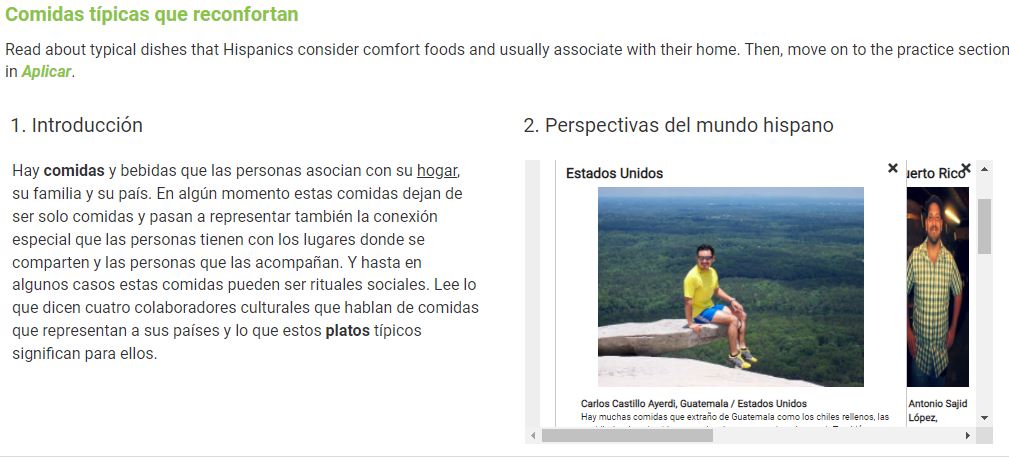Interpretive, Interpersonal, and Presentational Modes of Communication
Exploring Culture
In this course, we learned to use Spanish keywords to more effectively navigate towards pertinent information on the internet. This opened up a wealth of journals and articles written in Spanish that contained up to date information written from the perspective of Spanish speaking individuals. Having only previously been able to access and understand English sources was limiting, in regards to both the information itself, and also other, valuable viewpoints.
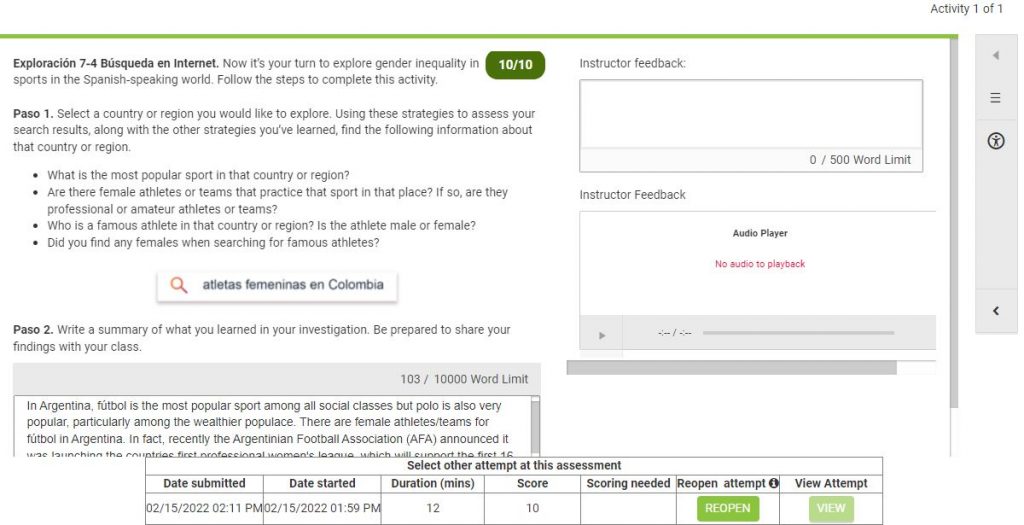
Engaging in Communities
I think it is incredibly important to engage in volunteer work both in my local community and the larger, global community. Helping out in your local community can create invaluable connections with your neighbors and help those in need. On a global scale, we can bring new viewpoints and ideas to help other countries with any issues they may face, be it humanitarian crises, natural disasters, or conservation efforts.
Personally, I hope to use my knowledge of Spanish to more effectively push forward with conservation efforts in Spanish speaking countries like Cuba and Mexico, where conservation efforts are ongoing in places like the Gardens of the Queen and the Sea of Cortez.

Interpersonal Communication
This semester, I participated in two 15-minute TalkAbroad conversations about health, food, and family. I also contributed comments about my classmates work, be it suggestions or encouragement about their work, in Spanish.
The TalkAbroad assignments were the most challenging part of this class by far, but they were also the most rewarding. It greatly increased my confidence to realize that I was able to hold a conversation in my target language without needing a reference page or translation device. Being able to speak with people in other countries helped reinforce the fact that we are not so different, regardless of our language or culture. We still have preferences for food or entertainment, enjoy spending time with our families or in nature, and overall, we are all just human beings. I did enjoy being able to explore some subtle differences in culture with my conversation partners. Like how some vegetables available in the states weren’t common in Guatemala and that there, comfort food consisted of much healthier fare than what we consider comfort food in Texas.
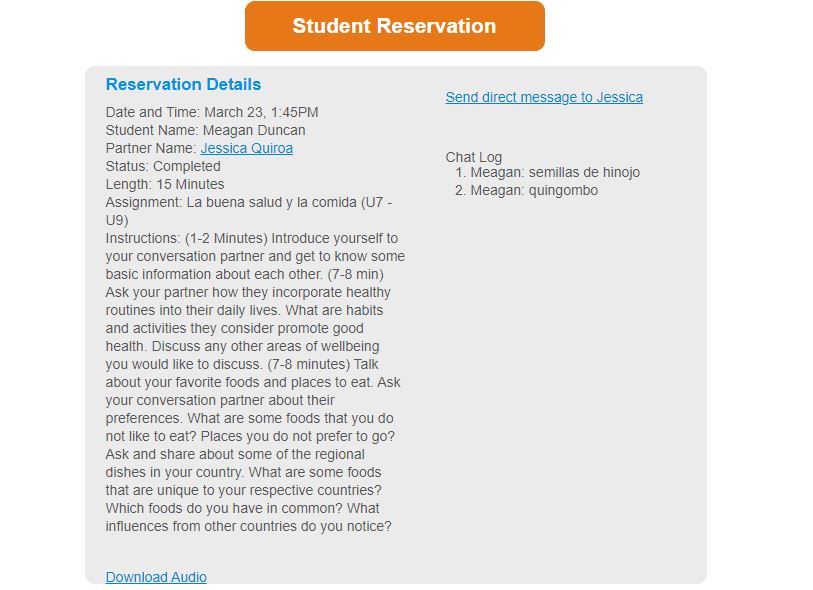
Presentational Speaking
During this semester, I read multiple paragraphs in Spanish out loud to the class and I also presented my project about migraines.
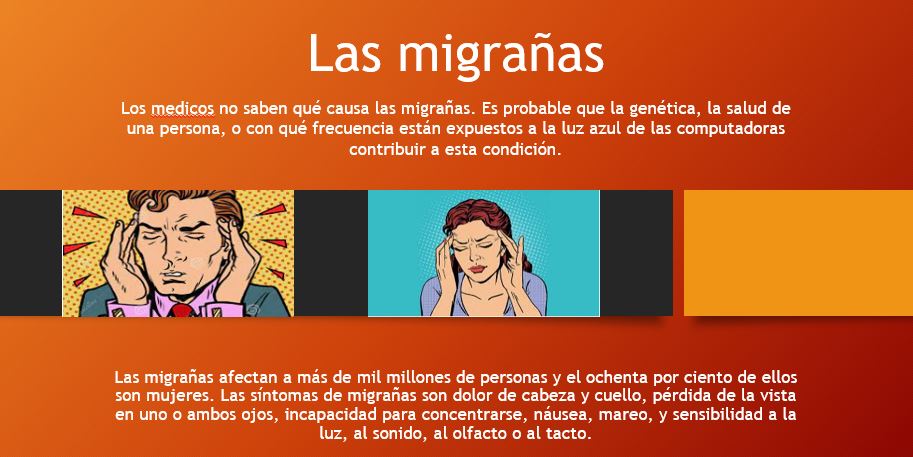
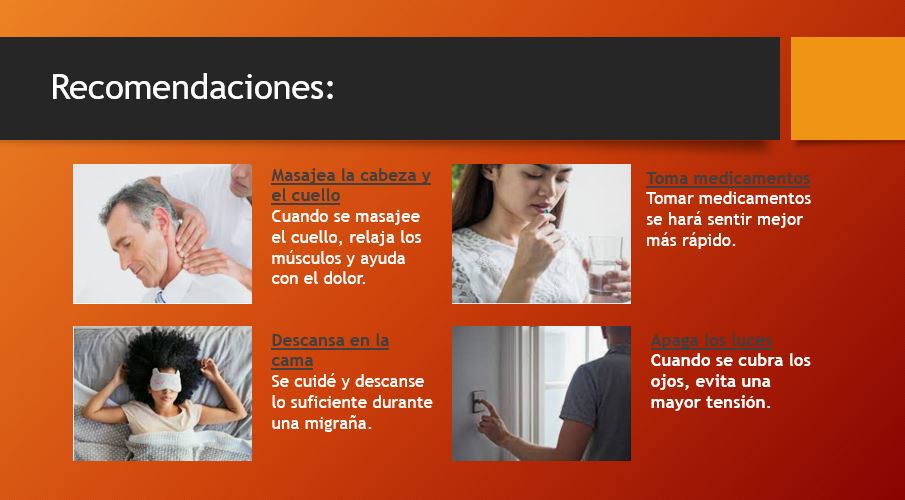
The challenging part of this particular project was conjugating the verbs into the correct command form, but I felt like I exceled verbally during my presentation with good pronunciation. Overall, I was happy with how the finished product came out, but I would have liked to add a little more information about resources available to those struggling with migraines.
Presentational Writing
For almost every assignment, we had to write in Spanish. I composed countless paragraphs for LingroHub homework and projects.
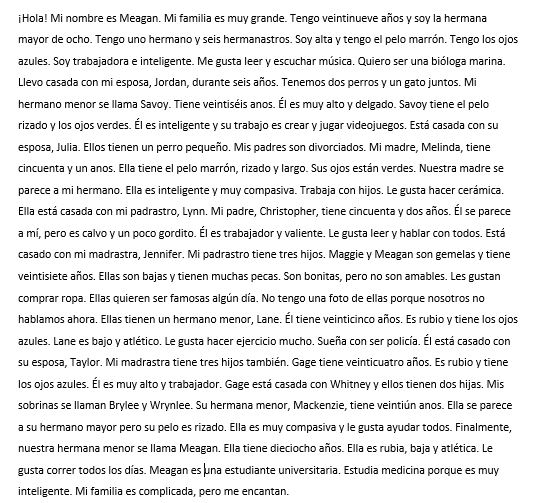
Interpretive Listening
I completed many listening assignments in LingroHub where we had to listen and respond in a hypothetical conversation, listen to a recording and answer questions about the information presented, and match recordings with their written version. These assignments were in addition to the TalkAbroad conversations I completed.

For this activity, I listened to a recording describing a type of activity, and then matched that activity with a picture of the activity. I was then asked if I liked doing that activity, in this case, water-skiing, which I do enjoy so I answered in the affirmative.
Outside of classwork, I enjoy listening to Spanish music by artists like Sebastian Yara, and I often turn the language to Spanish on movies and try to translate them in real time without looking at the subtitles. I feel like these activities have helped increase my rate of comprehension during conversations.
Interpretive Reading
During class, we often read excerpts from our cultural collaborators about different cultural aspects of their respective countries.
